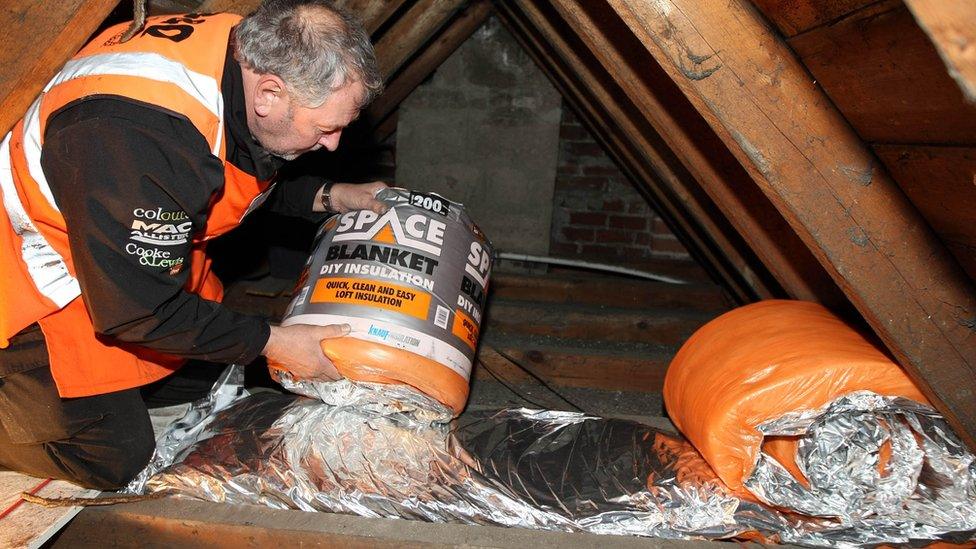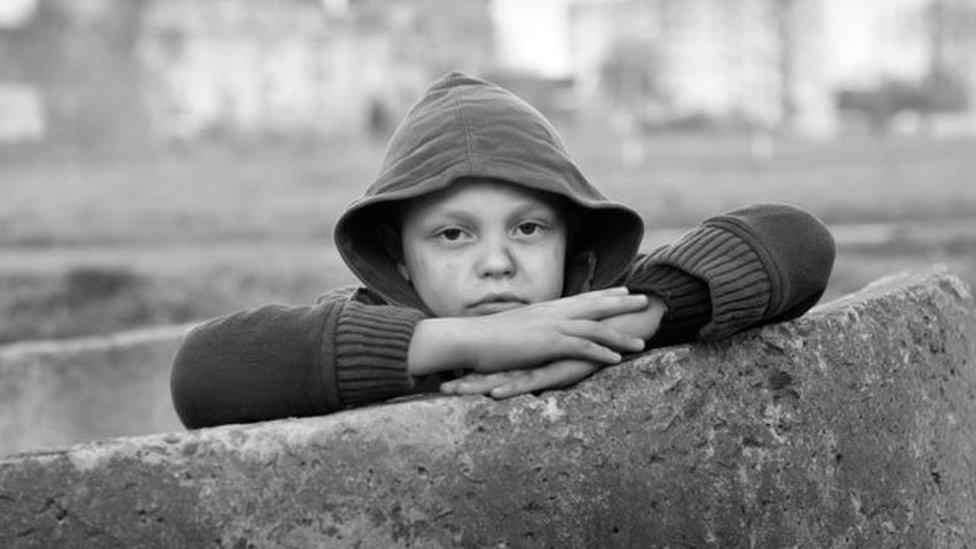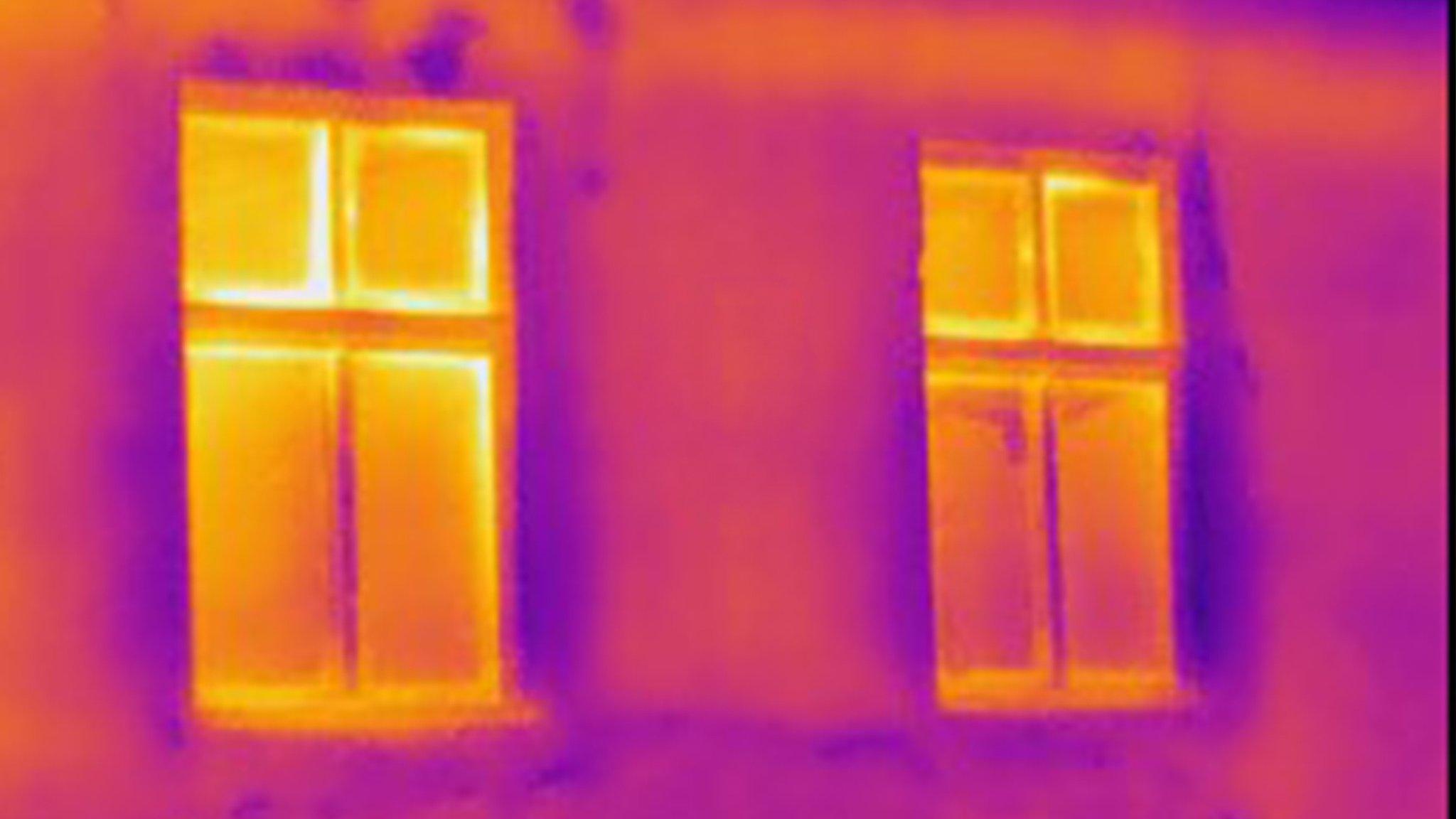Promise to end fuel poverty in Wales broken by Welsh Government
- Published
- comments

The warm homes programme included funding for loft insulation
Fuel poverty has not been eradicated in Wales, breaking a pledge made by the Welsh Government to put an end to people struggling to heat their home.
The Wales Audit Office (WAO) said fuel poverty is estimated to have more than halved between 2008 and 2018.
But the watchdog said all targets to end it by 2018 had been missed by the Welsh Government.
Ministers said UK government austerity policies had "undermined our efforts to meet these targets".
Their targets were to eradicate fuel poverty among all vulnerable groups by 2010 and in social housing by 2012.
They had also pledged to completely eradicate it in Wales by 2018.
Vulnerable households are defined as those containing elderly people, children, or someone with a disability or suffering from a long-term illness.
In Wales a household is described as fuel poor if it costs more than 10% of its income, including housing benefit, to heat the home.
The WAO described the Welsh Government targets as "highly ambitious" because some of the main causes of fuel poverty are either partly or entirely outside ministers' control.
Its report said fuel poverty fell in the 10 years to 2018, from an estimated 332,000 households to 155,000, or 12% of all households.
Also in 2018 it was estimated that:
32,000 of households (2%) were in severe fuel poverty, 19,000 of them from vulnerable households
130,000 of vulnerable households (11%) were in fuel poverty
21,000 households (9%) in social housing were in fuel poverty
The report said the Welsh Government spent £252m, including some EU funds, on a warm homes programme, external focused on improving home energy efficiency and offering advice on ways of saving energy.
Ministers have also set higher energy efficiency standards in regulations for newly built and substantially renovated homes.
But the WAO said it was unclear to what extent this had contributed to the fall in fuel poverty.
The report recommends linking fuel poverty schemes to other programmes to address the underlying causes of fuel poverty.
The document identifies the main causes as low incomes, energy prices and poor energy efficiency, due to factors such as a lack of good insulation.
Wales auditor general Adrian Crompton said: "Living in a cold, damp home impacts on people's mental and physical wellbeing and dealing with the consequences of fuel poverty increases other public spending, for example in the NHS.
"So it is good to see that Welsh Government investment has helped to improve the energy efficiency of people's homes and seems to be part of the story of reducing fuel poverty rates.
"But, given it has not met its own targets to eradicate fuel poverty, there are lessons for the Welsh Government to learn as it considers its future ambitions and role."
A Welsh Government spokesperson said: "The impact of austerity has undermined our efforts to meet these targets.
"However, we will carefully consider the findings of the auditor general and, working with partners, build on our substantial progress which has halved the number of fuel poor homes, taking families out of fuel poverty, improving their health and reducing carbon emissions."
Welsh ministers are planning to publish a new fuel poverty plan next February.
- Published15 May 2019

- Published20 June 2019

- Published30 September 2017

- Published30 April 2017
